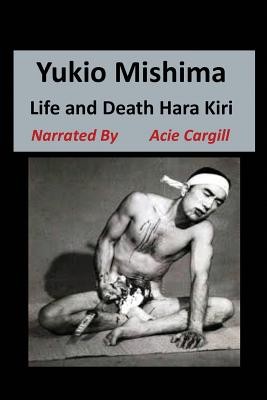
- Išsiųsime per 10–14 d.d.
- Autorius: Acie Cargill
- Leidėjas: INDEPENDENTLY PUBLISHED
- ISBN-10: 1081535032
- ISBN-13: 9781081535032
- Formatas: 15.2 x 22.9 x 0.4 cm, minkšti viršeliai
- Kalba: Anglų
- Extra -15 % nuolaida šiai knygai su kodu: ENG15
Atsiliepimai
Aprašymas
Yukio Mishima, one of Japan's best writers of the 2oth century, was deeply attracted to the patriotism and martial spirit of Japan's past, which he contrasted unfavourably to the materialistic Westernized people and the prosperous society of Japan in the postwar era. Mishima himself was torn between these differing values. Although he maintained an essentially Western lifestyle in his private life and had a vast knowledge of Western culture, he raged against Japan's imitation of the West. He diligently developed the age-old Japanese arts of karate and kendo. He formed a controversial private army of about 80 students, the Tate no Kai (Shield Society), with the aim of preserving the Japanese martial spirit and theoretically helping to protect the emperor (the symbol of Japanese culture) in case of an uprising by the left or a communist attack.On November 25, 1970, Mishima and four members of his militia entered a military base in central Tokyo, took the commandant hostage, and tried to persuade the soldiers at the base to join them in supporting the emperor and overturning Japan's pacifist Constitution. When this was unsuccessful, Mishima committed suicide by seppuku. It seems that this was his original purpose, a ritual suicide in the samurai tradition. He had written his closing letters and got all his affairs in order before they went on their mission. He left enough money for his assistants to have a legal defense.EXTRA 15 % nuolaida
Kupono kodas: ENG15
Akcija baigiasi už 3d.14:49:45
Nuolaidos kodas galioja perkant nuo 10 €. Nuolaidos nesumuojamos.

- Autorius: Acie Cargill
- Leidėjas: INDEPENDENTLY PUBLISHED
- ISBN-10: 1081535032
- ISBN-13: 9781081535032
- Formatas: 15.2 x 22.9 x 0.4 cm, minkšti viršeliai
- Kalba: Anglų




Atsiliepimai